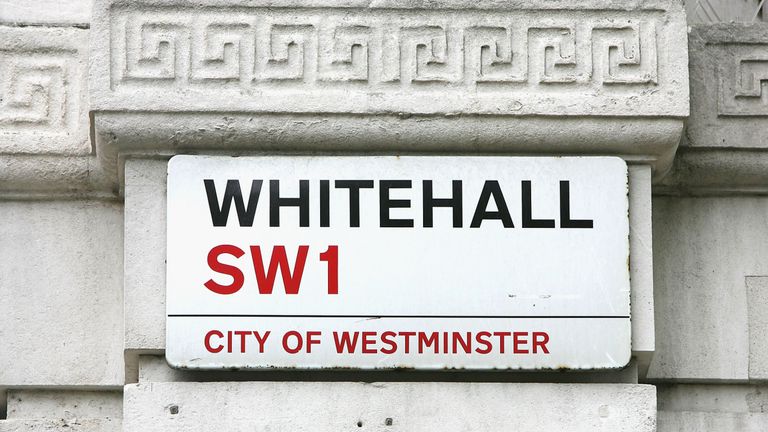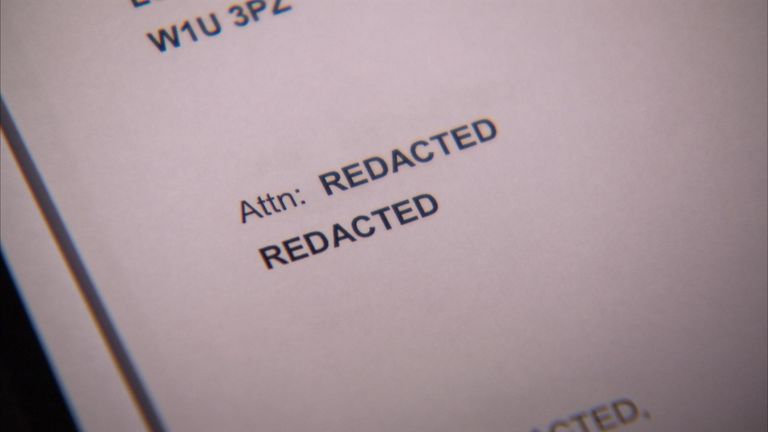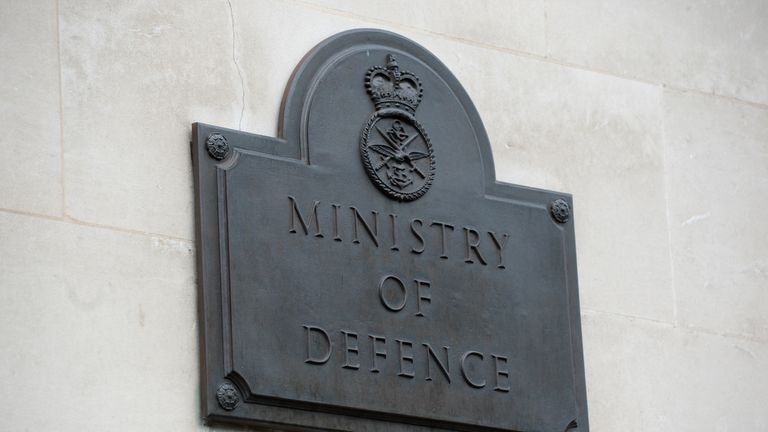Brexit: Hundreds of gagging orders taken out by government
Sky's Adam Parsons reveals a culture of secrecy surrounding no-deal Brexit preparations by government departments.
Friday 5 April 2019 11:49, UK
Sky News can reveal that the government has taken out hundreds of gagging orders as part of its preparations for a no-deal Brexit.
The orders, formerly known as non-disclosure agreements (NDAs), are legally binding contracts to stop confidential conversations being talked about in public.
They are typically used to maintain secrecy around corporate deals or to protect intellectual property.
However, we have discovered that the use of these NDAs has become prevalent across great swathes of the UK government.
Using freedom of information requests, Sky News asked departments to reveal how many NDAs each had taken out as part of their preparations for Brexit.
All responded, although not all of them actually answered the question.
The Department for Transport (DfT) told us it had 79 separate NDAs by the end of February. Of these, we understand that around 50 had been signed in the preceding three months, at an average of around four per week.
Although the names of those involved have obviously not been made public, we understand that the DfT's gagging orders involve hauliers, public transport companies, infrastructure operators and petrol retailers.
Some told us they felt frustrated that a government "obsession with secrecy" had hindered constructive debate and exchange of information.
The Department of Health and Social Care revealed it had taken out 26 gagging orders, while the Department for Exiting the European Union confirmed it had taken out seven.
The Department for Digital, Culture, Media & Sport has fewer than five.
The Home Office refused to answer the question, saying that it would be too burdensome to research the answer.
However, Sky News has since confirmed that the Home Office has taken out at least 100 gagging orders, simply in relation to ports. It is unclear how many gagging orders it has in relation to the rest of its work.
Chief executive of the British Ports Association, Richard Ballantyne, told us: "Signing NDAs can disrupt the necessary flow of information with the wider logistics industry, who we often work very closely with, as well as with colleagues in Europe.
"We have found it difficult to share some information that may have helped smooth preparations with ports and customs authorities in Ireland and mainland Europe, who until relatively recently had reported little direct contact with authorities in the UK on this matter."
Nine departments, including the Department of Work and Pensions, the Ministry of Defence and the Department for Education, said had not taken out any NDAs in relation to Brexit.
Several others told us that the information "was not held centrally", while the Department for Business said that it was "not in the public interest" for the information to be revealed, even though the same details had been provided by every other section of government.
Others, though, were more evasive. Both the Treasury and the Department for the Environment, Fisheries and Rural Affairs, told Sky News that they had signed NDAs, but refused to elaborate on the numbers they had signed.
They said that it would be too burdensome to calculate, suggesting that it would take a worker more than two days of work to collate the information.
We spoke to many in British business who said that Whitehall's use of these gagging orders had frustrated their Brexit plans.
The Food and Drink Federation said: "One of our frustrations throughout the process of no-deal planning has been an inconsistent approach to confidentiality across government.
"Documents are often shown to us, but we're then told we cannot take them away from meetings and share them with members and more widely. This limits our ability to provide high-quality feedback.
"Where NDAs have been employed this clearly creates a two-tier relationship with industry, with some businesses being insiders and others kept out of the loop. Quite apart from the practical consequences, it is no way to build trust."
Rod McKenzie, managing director of the Road Haulage Association, said that the use of non-disclosure agreements had "hindered and frustrated" his industry.
He said: "NDAs have been used far, far too much. It is not fair and it is simply wrong to use them in this way. They are gagging trade associations like ours from telling our members about the effect of Brexit.
"I understand that government doesn't want its plans for a no-deal Brexit to end up in newspapers, but there comes a point when we have to tell our members what is actually going on, and we have been gagged from doing that on a continual basis."
The Department for Transport told Sky News: "Good government relies on practical decisions being informed by the best advice available and requires the opportunity to make a full consideration of all the available options, without threat of premature disclosure during this live process.
"The decisions involved will have wide implications for the UK, and it is absolutely vital that the process is able to proceed in a safe space, and that officials and ministers are able to have those discussions, and raise potential options and risks, necessary to fully inform the best possible policy decisions."






